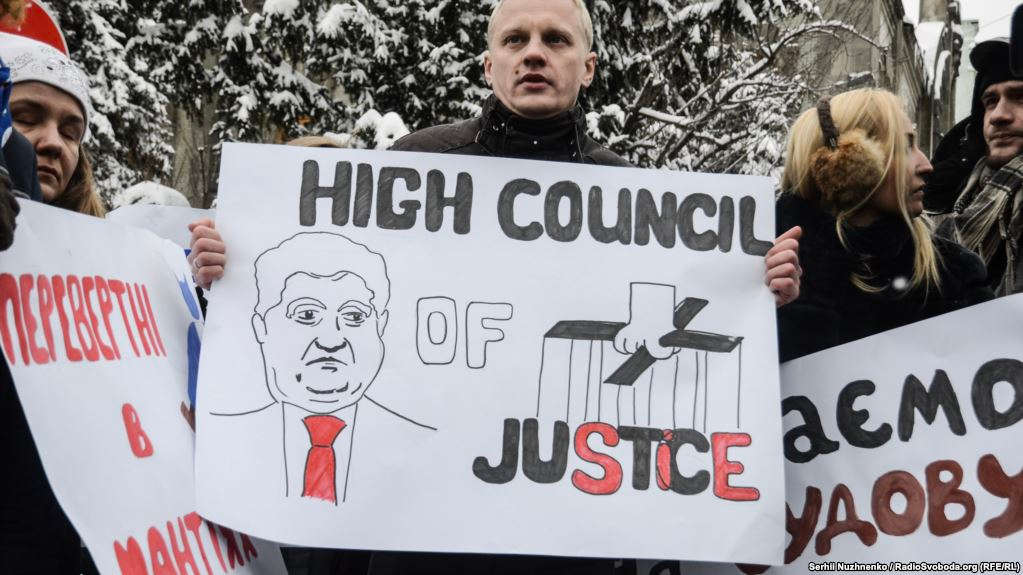How Ukraine can tame its “judicial mafia”Bill 3711-d foresaw forming a new HQCJ. But the key question was who would do the forming. Ukraine already knows how the effective procedure would look -- international experts having a crucial role should take part in the process. This formula already worked and proved its effectiveness when in 2018, the High Anti-Corruption Court, the final link in Ukraine's new anti-corruption infrastructure was created. Back then, civil society insisted on the participation of international partners in the process. Society did not consider unreformed Ukrainian bodies trustworthy -- there was the risk that they would select corrupt judges. But the participation of international experts and close attention of Ukraine's international partners to the process bore fruit - after almost two years of the High Anti-Corruption Court’s work, top-corrupts of the country have finally started to be punished.
Why post-Euromaidan anti-corruption reform in Ukraine is still a successTherefore, in the question of reforming the HQQJ, leading NGOs in the field and Ukraine's international partners strongly supported giving international experts a decisive role. Their participation was foreseen by bill 3711-d. However, the bill did not provide them with the key role. Instead, the unreformed HCJ was given a final say. Amendment #453 was called to change it. Until the very last moment, it was unclear whether the lawmakers support it and give the real judicial reform a chance, or would lead the field into a corruption abyss for a few more years. Eventually, the MPs first supported the key amendment and then the bill in general.
As a result, the law foresees that the competition commission which selects the members of the HQCJ will consist of six members. Three out of them are judges or retired judges, another three -- independent international experts. Amendment #453 establishes that the voice of the international experts will be decisive in case the voices of the competition commission regarding some candidates differ.
Therefore, the bill on reforming the HQCJ adopted on 29 June is a long-awaited step which, however, is only a part of the reform. Reforming the HCJ is the next step. Currently, it still can influence the process in the judiciary and even pressure judges which make decisions the HCJ does not want to be made.
“According to the draft law, the competition commission is obliged to submit 32 candidates to the HQCJ for consideration by the HCJ, and the latter is to elect 16 members of the HQCJ. It is obvious that the corrupt and unreformed HCJ will choose the most loyal candidates for the HCCJ, not the most worthy ones. The task of reforming the HCJ - also, with the crucial role of international experts -- is becoming extremely important for the viability of judicial reform,” Mykhaylo Zhernakov, the head of the DEJURE Foundation, leading NGO in judiciary explained.As well, adopting the bill on the HQCJ is only one half of the process of its reform; the next half concerns how it will be implemented.
Read also:
- Reforming judiciary in focus of Ukraine’s first high-level non-oligarchic international conference
- Saving Ukraine’s Anti-Corruption Court: international experts filter candidates, facing roadblocks from old system
- How Ukraine can tame its “judicial mafia”
- Zelenskyy dismisses two Constitutional Court judges, deepening constitutional crisis
- Why post-Euromaidan anti-corruption reform in Ukraine is still a success
- Despite second attempt at judicial reform, political decisions rule Ukrainian courts





